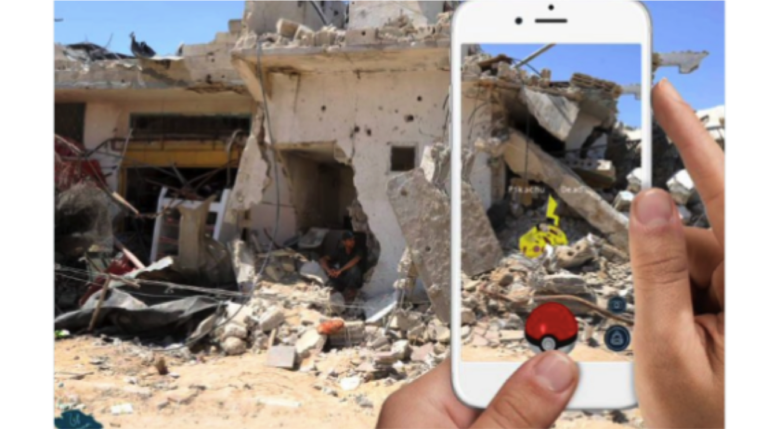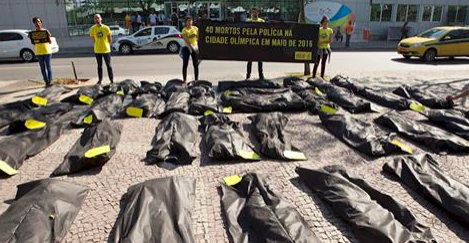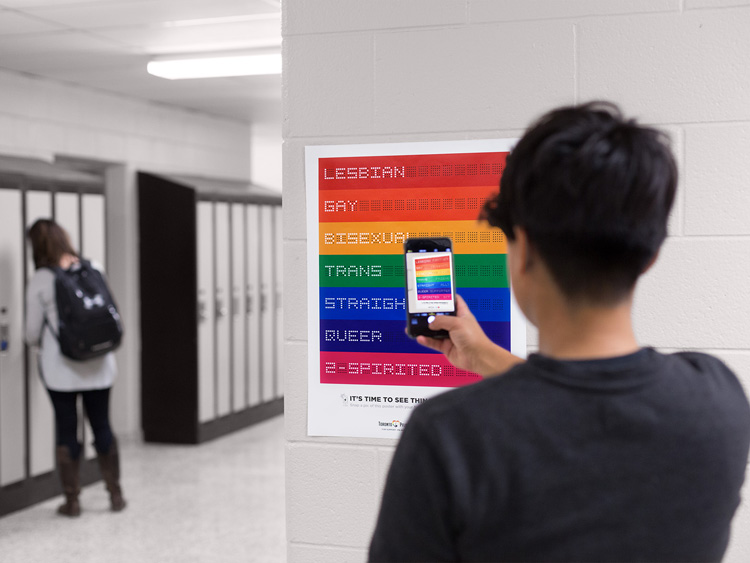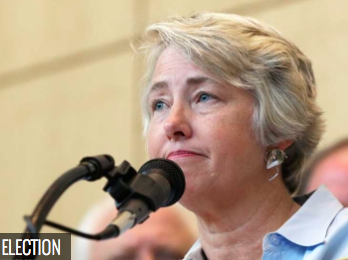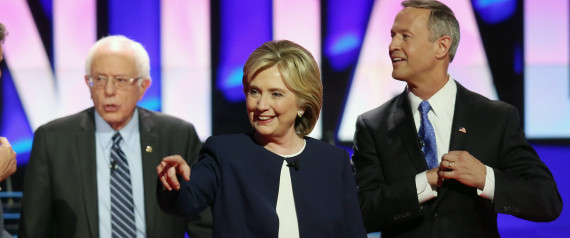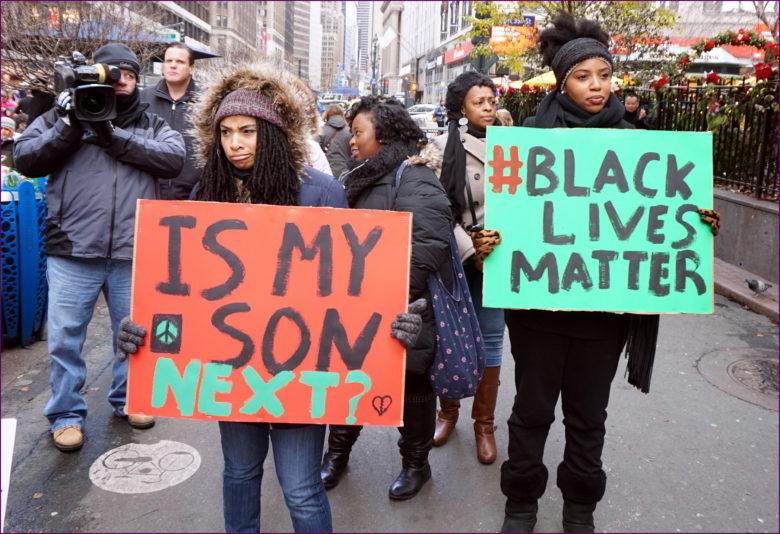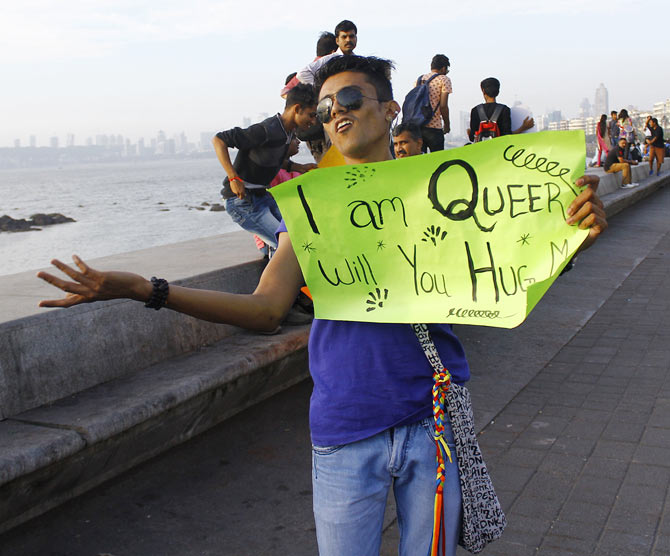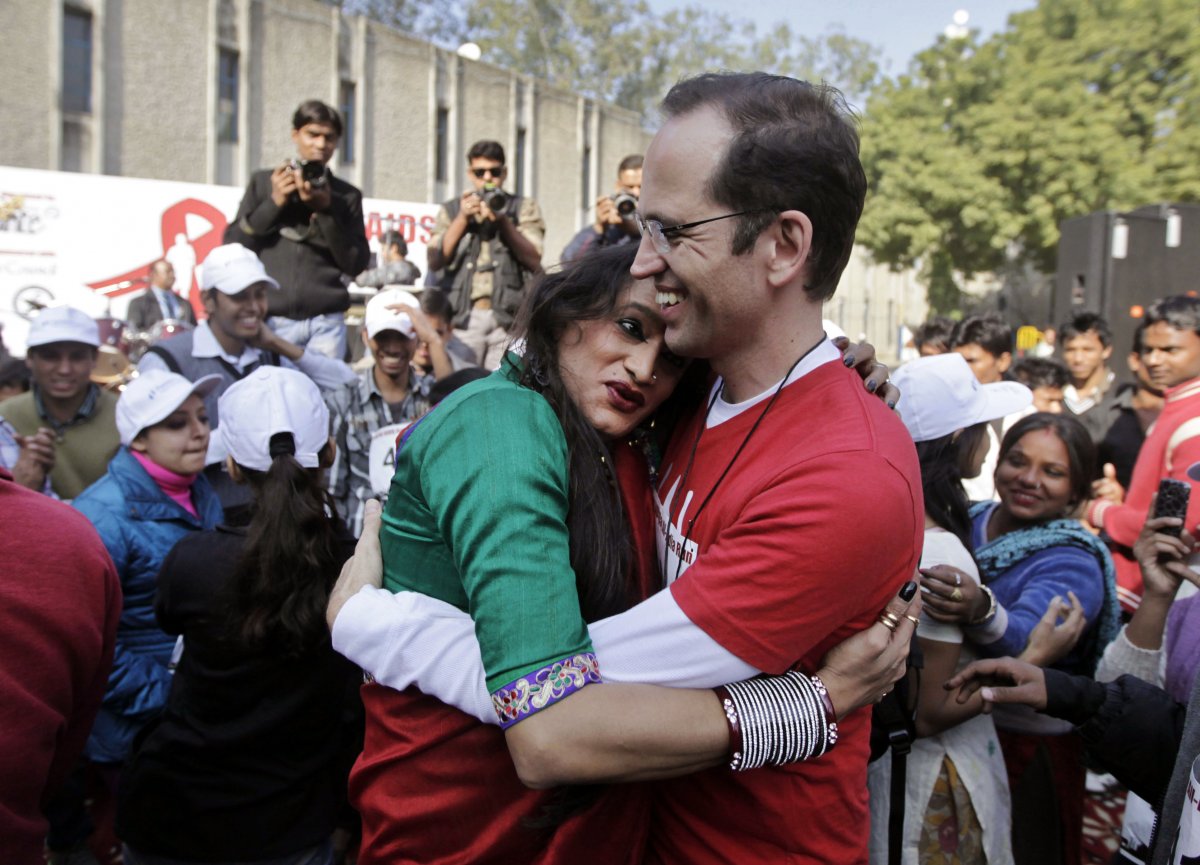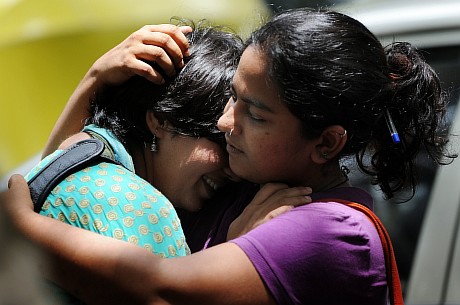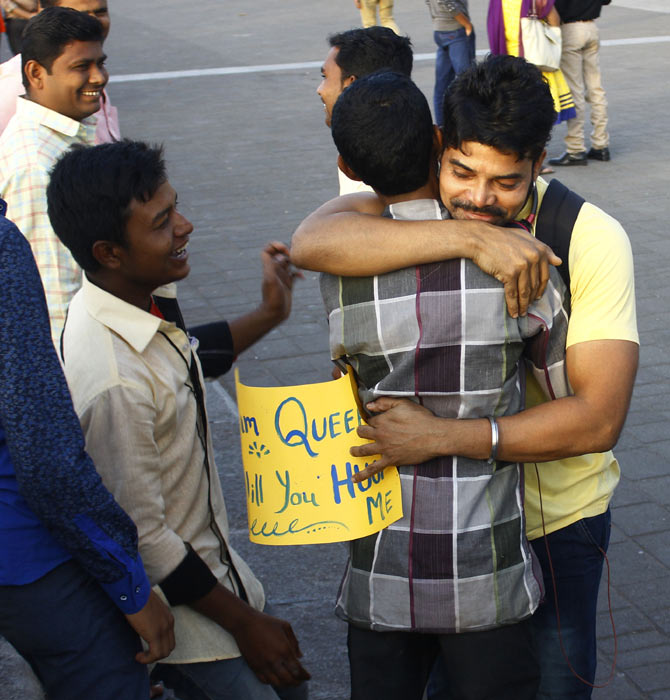Palestinians Use Pokemon Go to Highlight Everyday Oppression
Palestinians Use Pokemon Go to Highlight Everyday Oppression
Palestinians are using the viral smartphone game Pokemon Go that has taken the world by storm to highlight their political grievances, News.com.au reported Tuesday.
While seemingly innocuous at first, the game has been subject to a number of conspiracy theories, including in China, and its links to the CIA have raised concern by many, including among Egyptian security authorities who claim the game threatens Egypt’s national security.
But now Pokemon Go is being used as a way to showcase the injustice Palestinians face under Israeli military occupation.
Although it has not officially been released in the region, tech-savvy users have managed to cheat the system and download the game.
One user tweeted an image of Pikachu lying among rubble in a site that has been torn down, with the health status of the creature describing it as “Dead.”
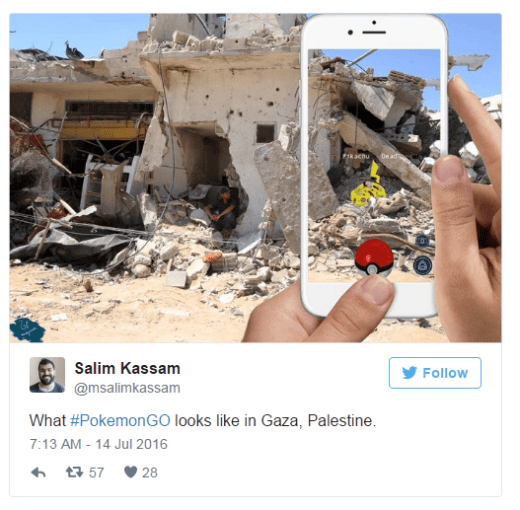
Another image being shared widely depicts a rare Charizard that’s out of reach because it’s on the other side of the apartheid wall that separates Israeli territory from the West Bank.

Facebook user Abd Elrahman Salayma, who lives in Hebron in the West Bank, joked: “There is a pokémon down the street in the settlement… how the hell am i going to catch it?”
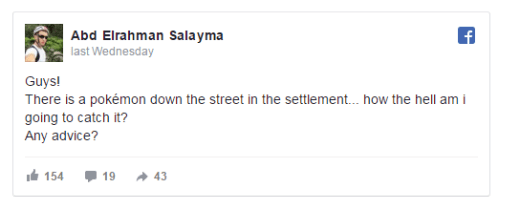
Another Twitter user commented that Israel doesn’t need the game as it already “hunts Palestinians for fun”.
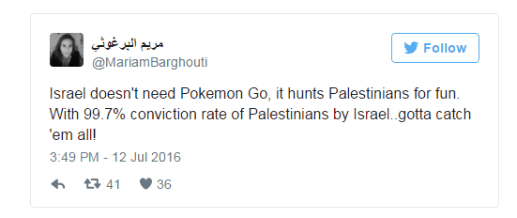
Haaretz reported last week that the Israeli Defense Force issued a warning to its soldiers, telling them not to use the game on military bases, as it’s a “source for gathering information.” Soldiers are reportedly also prohibited from “checking in” on social media platforms at military bases, in fear of soldiers revealing sensitive information about military operations.

